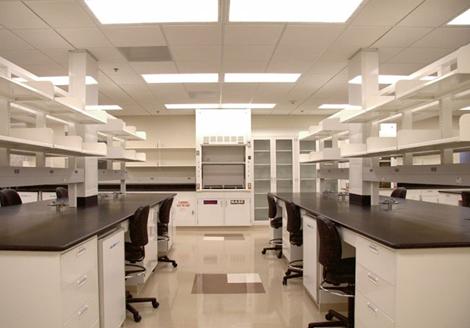Team:UANL Mty-Mexico/Safety
From 2013.igem.org
Overview
Sometimes the laboratory can be dangerous; there are many hazards that have the potential to injure or cause ill health or disease. Protecting the health and safety of people in the laboratory is a community expectation that makes good standing.
We have to understand the risks that synthetic organisms pose to the environment, what kinds of information are needed to support rigorous assessments, or who should collect such data (Dana, et al, 2012)
.- Pay attention in the differences between the function of natural and synthetic organisms and how it affect the interactions with the environment. Research in this area could, for instance, look for changes in a synthetic organism’s production of toxic substances or other harmful metabolites.
- Analyze if the escaped microorganisms have the hability to survive and compete with natural organisms, and how this will affect habitats or biodiversity.
- Another area of risk is gene transfer, is important to determine if synthetic organisms will pass on properties such as antibiotic resistance and this represent possible threats to human health.
We aim to apply the risk management approach to safety in the laboratory and this means to complete a risk assessment of this research project.
Safety forms were approved on: September 22, 2013 by Evan Appleton.
Approved by CoBio
Our project and constructions were analyzed by members of CoBio (Biosafety Committee) that belongs to CIBIOGEM this is responsible of safety in projects using genetically modified organisms in our country.
CoBio helped us to follow all the guidelines in biosafety and they suggested the elaboration of a risk assessment for our project "Thermocoli" (shows below) and we had several meetings to evaluate the advances of Thermocoli that have led us to our project approval.
CoBio: See approval
Safety: Risk Assessment
Risk Assessment: Download PDF version
Organism Description
Escherichia coli is an Enterobacteria described by Bergey's Manual (1957). Escherichia is a Gram-negative rod which can be motile by peritrichous flagella or nonmotile. Because of its wide use as a model organism in research in microbial genetics and physiology, and its use in industrial applications, E. coli K-12 is one of the most extensively studied microorganisms.
Genetic Modifications
The project “Thermocoli” consists in a circuit of transcription factors and reporter genes, some of which are under the post-transcriptional regulation of thermoregulable RNA elements, also known as RNA thermometers. These genes are arrange in a circuit constructed in such a way that three distinguishable states should emerge, characterized by the expression and repression of two different reporter fluorescent proteins.
Identification Tags
Due to the recent increase in synthetic biology projects with great potential for direct application in the environment, industry, or any other activity that requires the release beyond the laboratory, it is necessary to take apart biosecurity measures to allow microorganism growth only in conditions specific and desired and that's why we ensure the tracking of such agencies in the event that at some point these genetic technologies fail.
Laboratory and Biocontainment
All the personal of the laboratory is aware of the biosafety rules, regulations and they comprehend the biosafety management plan. Our project does not raise any safety issues other than the normally associated with working with typical cloning strains of the bacteria Escherichia coli and molecular biology procedures.
Stability Test
In the case of an accidental release of our plasmids, we'd be interested in knowing for how long will our cells keep the DNA with put on them, that is, how stable a plasmid is in the absence of a selective pressure, such as the antibiotic commonly used to specifically grow transformed cells.
Potential Risks
Given its natural habitat of the large bowel of mammals, E. coli will not likely survive for long periods in soil, water, or air. E. coli K-12 has been shown to have poorer survival characteristics in soil and water than other E. coli . The ability of E.coli to survive under environmental conditions is thus very limited.
 "
"


















